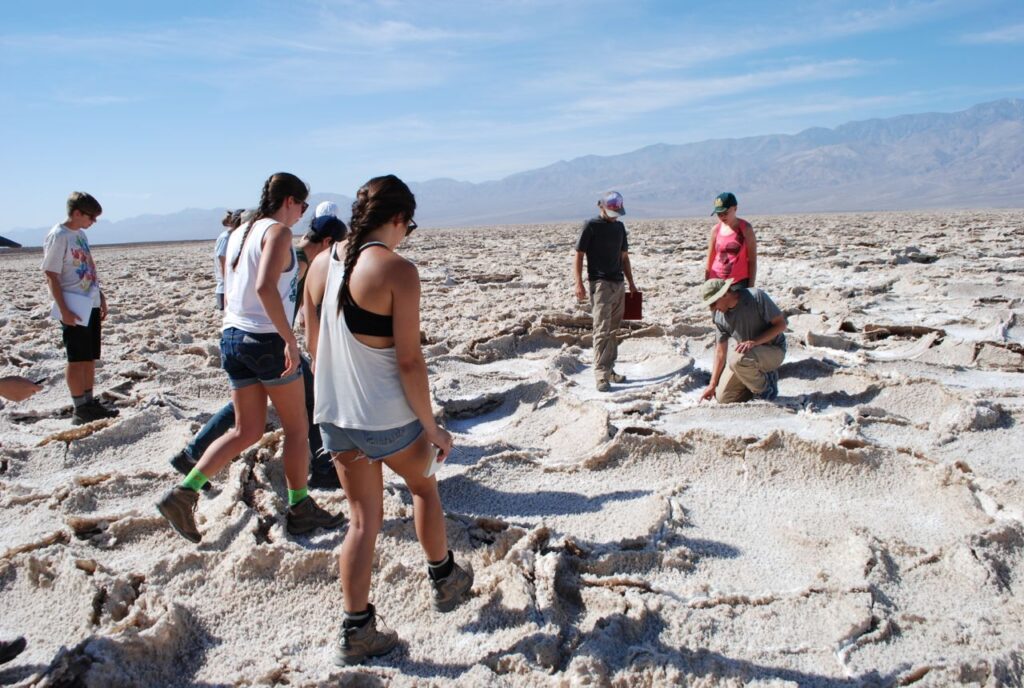
Breadths
- Biological Sciences
- Social and Behavioral Sciences
- Historical Studies
What does it mean to study something “from the field,” and how might that form of investigation teach us new things about California? Introducing you to the research forms of biology, archaeology, and geography, this cluster of courses will help you understand California from the perspective of its varied biomes, its human histories, and its forms of urban development. The hub course in integrated biology will feature field trips to UC field stations and natural reserves located in and around the Bay Area. Costs for these trips will be covered, no additional fees are assessed, but you must be able to fit them into your schedule.
Here are the 2024 dates:
- Saturday, August 31: Local day trip, SF Bay plant and aquatic communities.
- September 13-15*: Overnight trip to Sagehen Creek Field Station. *Please note the new dates: Sept. 13-15.
- October 25-27: Overnight trip to Point Reyes Field Station.
Transportation: For the weekend trips, students will leave from campus in rented vans on Friday afternoon and return on Sunday afternoon.
Equipment: Camping equipment (tents, sleeping pads and sleeping bags) will be provided for students who do not have them.
Please only sign up for this cluster if you can commit to these trips.
Meeting Schedule
Integrative Biology 82: MW 11:00 AM-12:00 PM
Geography 50AC: Tu/Th 5:00-6:30 PM, discussion section W 1:00-1:59 PM
Anthropology 2AC: Tu/Th 9:30-11:00 AM, discussion section W 9:00-10:00 AM
Hub: Integrative Biology 82: Introduction to Field Research in Global Change Biology
3 units, Biological Sciences breadth
This introductory course will give lower division students experience in hands-on research throughout the Bay Area region with an emphasis on field-based learning to understand the natural context of anthropogenic global changes. Students will learn about how both Indigenous peoples and settlers have shaped ecosystems and landscapes of coastal California; how Indigenous peoples used fire to manage vegetation and how introduction of large-scale cattle ranching changed terrestrial and, more surprisingly, marine ecosystems. They will explore natural and anthropogenic changes across radically different timescales; by visiting intertidal communities and learning about the daily and seasonal cycles that influence them and then examining fossil marine communities and learn about how higher-order ecological changes are controlled by 100,000-year glacial-interglacial cycles. In addition, students will consider what our impact is in the present and will be in the future.
Instructors: Paul Fine and Seth Finnegan
Wing 1: Geography 50AC, California
4 units, Social and Behavioral Sciences breadth
This class can be used to satisfy a requirement for the following majors: American Studies and Geography. Note that other classes may also used to satisfy the same requirement.
California is a contradiction. It is a symbol, a myth, and a talismanic lifestyle. And there is always a disjuncture between what the Golden State promises and what it delivers. Terrestrial paradise or a plundered province? California Dream or cruel illusion? We will address these questions, and many more, using themes and concepts of the discipline of geography, such as environmental geography, regional capitalism, economic geography, the production of space, and cultural landscape studies. Class meetings will consist of lectures and periodic individual and group activities designed to help us synthesize course materials and understand how our own experience and knowledge shapes our perceptions of California and its people, as well as of ourselves and each other. In doing so, we will pursue ways to think critically about the state we inhabit and what it may become.
Instructor: Seth Lunine
Wing 2: Anthropology 2AC, Archaeology
4 Units, Historical Studies breadth
This class is required for the Anthropology major and can be used to satisfy a requirement for American Studies. Note that other classes may also used to satisfy the same requirement for American Studies.
Archaeology is the science of recovering and interpreting the material remains of the past, but its focus is always on humanity and culture. As a branch of anthropology, archaeology focuses on how humans interacted with each other and the world around them. Traces of their activities include artifacts, ecofacts, features, and entire sites that together tell the story of how humans lived, what they ate, how they sheltered, how they entertained themselves, and what they believed.
Through interactive lectures and small group discussion, you will learn about archaeological theory and methods with a focus on the investigation of American Cultures. Lecture topics include archaeological ethics, disciplinary history, site formation processes, field and laboratory methods, museums and heritage sites, and the involvement of descendants and other stakeholder communities. We will explore archaeological case studies including collaboration with Native American nations and tribes, Indigenous methods of archaeology, bioarchaeology and the African diaspora, transnational approaches to the Chinese diaspora in California, and archaeology on the US-Mexico border and here in the San Francisco Bay Area. By the end of the course, students will possess an understanding of core archaeological theories and methods that will help them better question the world of material culture they see around them.
Instructor: TBD